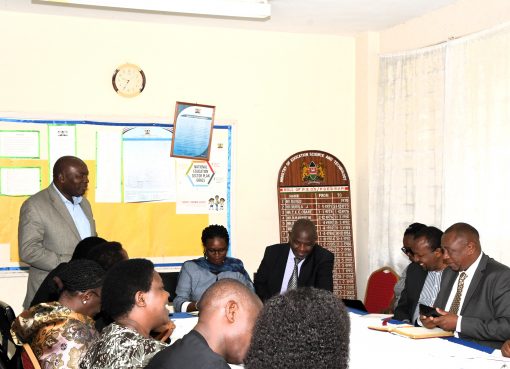The Public Sector Accounting Standards Board [PSASB], has termed the adoption and implementation of the Accrual System of Accounting as a solution to the challenging mounting pending bills, affecting both the National and County governments.
The Board said the move to transition to the revamped accounting system, has already been approved by the Cabinet, paving the way for its implementation across government Ministries, Departments, Agencies and the Counties.
Accrual basis accounting, is defined by its concept that requires transactions to be recorded in the period in which they occur, regardless of when the actual cash flows for the transactions are received.
According to the Board Chairman, Pius Nduatih, there was a need to overhaul the current financial reporting system, which has been plagued by inefficiencies and piling pending bills, that have affected small businesses, due to loan defaults.
Nduatih said under the new accrual accounting system, all assets will be capitalized and all liabilities owed reported as opposed to the current cash-based systems, that only record revenue and expenses, when they are physically received or paid out.
The Board Chair said, henceforth, the new system will account for all liabilities, such as pending bills as part of the balance sheet, which will enable the timely recording, verification and settlement in future.
Speaking during a sensitization exercise for all accounting officers, Nduatih acknowledged that the paradigm shifts to accrual-based accounting systems, is the answer to the piling pending bills menace that has for years faced governments.
The Chair regretted that mounting pending bills in the public sector, threatens the country’s micro-economic architecture which may drag economic growth, leading to the collapse of micro and small enterprise sectors.
“Delays in releasing payments to public sector contractors, often result in non-performing loans in the banking system, which leads to blacklisting of these entities”, said Nduatih.
The Chair said proper recording of all pending bills in financial statements, is the final answer to the piling bills within the public sectors, heralding a new phase of accountability and transparency.
The Board CEO, Georgina Muchina, said the accrual system will standardize financial reporting, enabling timely oversight from the Auditor General and Parliamentary committees on public expenditures.
Ms. Muchina said under the new system, pending bills will be given priority, which will create trust in financial reporting and hence attract investments from global financial players.
Consequently, the CEO said five commissions have been reporting on the new system, including the Ethics and Anti-Corruption Commission, Commission of Revenue Authority, Witness Protection Agency, Salaries and Remuneration Commission and Independent Electoral and Boundaries Commission [IEBC].
To facilitate a seamless transition to the adoption of the accrual system, the Board is calling for IFMIS configuration, an update of the standard chart of accounts, a valuation of assets and ongoing sensitization exercises targeting key dockets.
According to Tana River County Executive Member for Finance, Brenda Mokaya, the accrual systems of accounting is a blessing to counties plagued by piling pending bills.
Ms. Mokaya said her County has already paid Sh. 585 million, after a thorough verification exercise from a pending bill of over Sh. 1.2 billion that has accumulated for years noting that the adoption of new systems seeks to cure that.
For years, both the National and County governments have been affected by piling pending bills that have continued to cripple small and medium enterprises, due to delays in payments to enable suppliers to offset their loans.
Already the National government has formed the Pending Bills Review Committee, which has so far received pending bills worth over Sh. 140 billion from hundreds of entities that have accumulated for years.
By Erastus Gichohi





